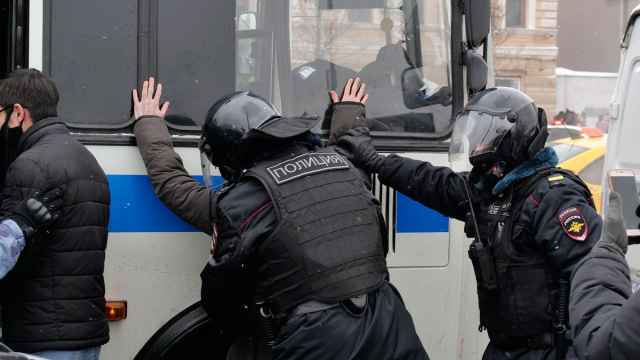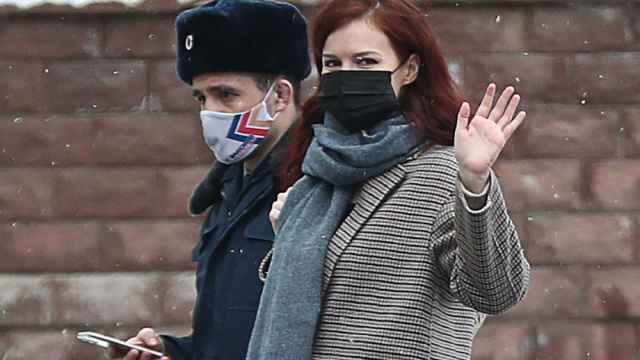Maria Pevchikh, an investigator for Alexei Navalny, has been named the new chair of the board of Navalny’s Anti-Corruption Foundation (FBK), the jailed Kremlin critic announced Wednesday.
Navalny's announcement follows the scandal-ridden resignation of his right-hand man Leonid Volkov from the FBK board chairmanship earlier this month.
“Her public work over the past two years has made her a bright political leader. You know her well, and I have no doubt that she will do a fine job in her new capacity as well,” Navalny said of Pevchikh, the founder and longtime head of the FBK’s investigative unit.
Pevchikh said she would work “to advance our anti-corruption agenda publicly and definitively” while continuing to work in FBK’s investigative unit.
“FBK never has been and never will be a tool in the hands of Putin’s elites, there must be no double meanings here,” Pevchikh said, hailing Volkov’s resignation as an “honest” decision.
Navalny’s close aide Volkov unexpectedly stepped down from his role at the FBK after he was forced to publicly admit to writing a letter in defense of sanctioned Russian billionaire Mikhail Fridman.
The letter, which was signed on behalf of the FBK, called on the EU to lift its sanctions on Fridman and other prominent shareholders in his Alfa Group consortium in an alleged attempt to fuel divides within Russia’s political elite.
Volkov admitted that he had sent the letter to the European Commission in October last year but failed to consult any of his associates prior to doing so.
“Volkov made a mistake, took the responsibility for it, and resigned… I am grateful to Leonid for his quick and responsible reaction within the spirit of our principles,” Navalny said of his associate in his announcement on social media.
“I also want to apologize to supporters, FBK donors and the advisory board. We have corrected this mistake, but there has been a mistake, which makes me also responsible for it,” the jailed Kremlin critic added.
Navalny also reassured supporters that his organization remains “fully committed” to advocating for sanctions on “Putin’s “bribe takers, crooks and warmongers.”
“All that has happened has been a good lesson for us. We hope that as we learn it, we will apply that experience correctly and improve ourselves,” said Navalny.
Russia banned FBK and Navalny's nationwide political network as "extremist" organizations in 2021, a move widely seen as retaliation for their work to expose corruption among Russia's elites.
A Message from The Moscow Times:
Dear readers,
We are facing unprecedented challenges. Russia's Prosecutor General's Office has designated The Moscow Times as an "undesirable" organization, criminalizing our work and putting our staff at risk of prosecution. This follows our earlier unjust labeling as a "foreign agent."
These actions are direct attempts to silence independent journalism in Russia. The authorities claim our work "discredits the decisions of the Russian leadership." We see things differently: we strive to provide accurate, unbiased reporting on Russia.
We, the journalists of The Moscow Times, refuse to be silenced. But to continue our work, we need your help.
Your support, no matter how small, makes a world of difference. If you can, please support us monthly starting from just $2. It's quick to set up, and every contribution makes a significant impact.
By supporting The Moscow Times, you're defending open, independent journalism in the face of repression. Thank you for standing with us.
Remind me later.






